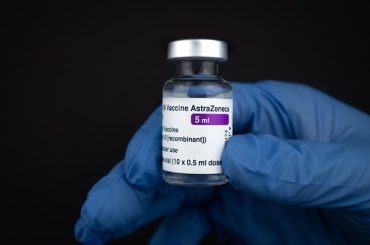Before we dive deep into the PESTEL analysis, let’s get the business overview of The Body Shop. The Body Shop is a global, British-based cosmetics and skincare retailer founded by Dame Anita Roddick in 1976. It has a strong reputation for being environmentally conscious and socially responsible. Here’s a more comprehensive overview:
- Products: The Body Shop offers a broad range of beauty products, including skincare, makeup, hair care, and body care items. Its product lines often feature natural ingredients and are marketed as cruelty-free, vegetarian, or vegan.
- Ethics and Sustainability: The Body Shop is known for its commitment to ethical sourcing, environmental sustainability, and social activism. The company was one of the first to advocate against animal testing in cosmetics, which led to a European Union-wide ban in 2013. The Body Shop’s Community Fair Trade (formerly Trade Not Aid) program aims to create sustainable trading relationships with marginalized communities worldwide, providing these communities with a fair income and benefits.
- Store Presence: The Body Shop operates over 3,000 retail locations in over 65 countries. These outlets are a mix of standalone shops, concessions within department stores, and an online presence. The company’s distinctive green branding is recognized worldwide.
- Ownership: The Body Shop was acquired by L’Oréal in 2006. However, in 2017, L’Oréal sold it to Natura & Co, a Brazilian cosmetic company that owns Aesop and Avon. Natura’s emphasis on sustainability and ethical sourcing aligned well with The Body Shop’s ethos.
- Performance: The Body Shop has consistently performed in the beauty and skincare market. However, it had struggled in the competitive market due to changes in consumer tastes and the rise of digital-native competitors. The sale to Natura & Co was part of a strategy to reinvigorate the brand.
- Future Strategy: Since its acquisition by Natura, The Body Shop has focused on revitalizing its brand, improving product offerings, and reinforcing its ethical and sustainability commitments. This includes plans to become the world’s most ethical and sustainable global business.
In 2020, out of twenty products rated, the Body Shop’s shower gels & bath products were the most popular among customers in Great Britain. Over five million British people reported using Body Shop shower gels & bath products that year.
The Body Shop products are particularly popular among UK women, with about 3.5 million women reporting using The Body Shop’s body creams and moisturizers. The Body Shop products are sold worldwide and generally categorized into five regions: Europe and the Middle East, Asia Pacific, America, South America, and Other.
Financial Performance: The Body Shop, driven by a strong acceleration in e-commerce and the expansion of the At Home channel, had a net revenue of R$5.3 billion ($1.1 bn USD), an increase of 32.4% compared with 2019.
Here is the PESTEL analysis of The Body Shop
A PESTEL analysis is a strategic management framework used to examine the external macro-environmental factors that can impact an organization or industry. The acronym PESTEL stands for:
- Political factors: Relate to government policies, regulations, political stability, and other political forces that may impact the business environment.
- Economic factors: Deal with economic conditions and trends affecting an organization’s operations, profitability, and growth.
- Sociocultural factors: Relate to social and cultural aspects that may influence consumer preferences, lifestyles, demographics, and market trends.
- Technological factors: Deal with developing and applying new technologies, innovations, and trends that can impact an industry or organization.
- Environmental factors: Relate to ecological and environmental concerns that may affect an organization’s operations and decision-making.
- Legal factors: Refer to the laws and regulations that govern businesses and industries.
In this article, we will do a PESTEL Analysis of The Body Shop.
PESTEL Analysis Framework: Explained with Examples
Political
- Regulation and Legislation: Governments enact various regulations affecting the cosmetics and skincare industry. These include regulations regarding product safety, labeling, and advertising. As a company committed to ethical practices, The Body Shop must comply with the minimum legal standards and strive to exceed them, aligning with its brand values.
- Trade Policies: Tariffs, quotas, and trade restrictions can affect The Body Shop’s supply chain, especially since the company sources natural ingredients worldwide. Political stability in sourcing countries is also essential; disruptions can cause delays or raise costs.
- Public Sentiment and Government Relations: Political factors include the public perception influenced by politicians or governmental bodies. For example, government-led initiatives against single-use plastics could positively impact The Body Shop if it’s ahead in offering eco-friendly packaging.
- Tax Policies: Changes in tax law, like increased taxes on imports or exports, can affect the company’s bottom line. Similarly, policies incentivizing sustainable business practices could benefit The Body Shop due to its ethical focus.
- Lobbying and Advocacy: Political activism and lobbying for issues like animal rights, environmental protection, and fair trade could either enhance or harm the company’s image, depending on its stance and the outcomes of these efforts.
Economic
- Consumer Spending: Consumer spending patterns directly affect The Body Shop’s revenues. Economic downturns or recessions may reduce spending on non-essential items like cosmetics and skincare products. Conversely, consumers may be more willing to purchase premium or specialty products during economic booms.
- Exchange Rates: The Body Shop is an international business vulnerable to exchange rate fluctuations. For example, a weaker pound could make its products more expensive for international buyers. This could also affect the cost of ingredients sourced from other countries.
- Inflation Rates: Inflation can increase the cost of raw materials, influencing the cost of producing goods. This, in turn, could either reduce the company’s profit margins or force it to raise product prices, which might affect customer demand.
- Interest Rates: Higher interest rates can increase the cost of borrowing capital for expansion or operations. This is particularly important for a retail business like The Body Shop, which may need loans for opening new stores or investing in new product development.
- Economic Growth: The rate of economic growth in a country or region can affect the expansion strategies of The Body Shop. Faster growth usually provides favorable conditions for expanding a business.
- Taxation: Economic policies related to taxation can affect the retail sector. Changes in sales tax, for instance, can directly impact consumer prices and, thus, affect demand.
Sociocultural
- Consumer Attitudes Toward Sustainability: The Body Shop has built its brand on ethical and sustainable practices. As society becomes more aware of environmental issues, this could play in favor of the company, attracting a more extensive customer base that prioritizes eco-friendly and cruelty-free products.
- Beauty Standards: Changing beauty norms and standards can impact the kinds of products that consumers seek. For instance, a trend toward natural beauty could boost demand for products emphasizing natural ingredients, a market where The Body Shop is strongly positioned.
- Demographic Changes: An aging population might increase the demand for anti-aging skincare products, while younger demographics might be more inclined towards trendy or seasonal products. Understanding these demographic shifts can help The Body Shop tailor its product line accordingly.
- Cultural Factors: Different cultures have varying attitudes toward beauty and personal care, affecting product preference. As an international brand, The Body Shop must consider these cultural differences when entering new markets or developing new products.
- Lifestyle Trends: Consumer lifestyles can significantly influence the type of beauty and skincare products they purchase. For example, a rise in health and wellness trends might lead to increased demand for skincare products with natural and organic ingredients.
- Gender Perspectives: Attitudes toward gender are changing, and there’s a growing focus on inclusivity. The Body Shop would ensure its product range and marketing campaigns are inclusive and cater to a broad spectrum of genders.
Technological
- E-Commerce: The rapid growth of e-commerce has changed how consumers shop for skincare and beauty products. The Body Shop needs a strong online presence to capitalize on this trend, which means investing in a user-friendly website, secure payment gateways, and efficient supply chain logistics for online sales.
- Digital Marketing: As traditional advertising channels become less effective, digital marketing, including social media advertising, search engine marketing, and influencer partnerships, has gained prominence. The Body Shop must effectively adapt its marketing strategies to leverage these digital tools.
- Data Analytics: Big data and analytics can provide valuable insights into customer behavior, preferences, and buying patterns. This can help The Body Shop personalize marketing efforts, optimize inventory, and influence new product development.
- Artificial Intelligence and Machine Learning: AI and machine learning technologies can improve customer service through chatbots, personalize marketing campaigns, and optimize supply chain management. These technologies can help The Body Shop operate more efficiently and improve the customer experience.
- Augmented Reality: AR can be used to enhance the customer experience by allowing them to virtually “try on” products before purchasing. This is especially useful for an industry like cosmetics, where consumers often hesitate to purchase without testing the product.
- Automation: In supply chain management and manufacturing, automation can lead to more efficient operations and cost savings. As The Body Shop sources natural ingredients globally, automation could help track the supply chain more effectively, ensuring meeting ethical and quality standards.
- Research & Development: Technological advancements in skincare and beauty formulations can offer new opportunities for product development. The Body Shop would benefit from staying ahead in R&D to provide innovative, effective, and safe products.
Environmental
- Sustainable Sourcing: One of The Body Shop’s key brand promises is to source ingredients sustainably. Environmental regulations, climate change effects on agriculture, and the availability of natural resources can all directly impact this commitment.
- Climate Change: Changing weather patterns due to climate change can affect the availability and cost of natural ingredients. These changes can also affect consumer behavior; for instance, increased awareness of climate change could make environmentally friendly products more attractive to consumers.
- Eco-Friendly Packaging: With increasing concern over plastic waste, there’s pressure on companies to adopt sustainable packaging solutions. Since The Body Shop has committed to environmental stewardship, its efforts (or lack thereof) will be closely scrutinized.
- Waste Management: The Body Shop will need to consider the environmental impact of its waste, including production waste and unsold goods. Technologies for reducing, reusing, or recycling waste can have operational and branding implications.
- Energy Use: The choice of energy sources for manufacturing, retail, and transportation operations can have cost and environmental implications. Renewable energy sources are becoming increasingly cost-effective and could align well with The Body Shop’s brand image.
- Supply Chain Sustainability: The Body Shop needs to scrutinize the environmental practices of its suppliers. This extends beyond immediate suppliers to include the entire supply chain, as consumers and regulatory bodies are increasingly looking at a company’s full environmental impact.
Legal
- Product Safety and Regulations: Cosmetics and personal care products are subject to strict safety guidelines that vary from country to country. Compliance with these regulations is essential to avoid legal penalties and maintain consumer trust.
- Intellectual Property Laws: Protection of patents, trademarks, and copyrights is crucial for The Body Shop, given its unique formulations and branding. Failure to protect intellectual property can result in loss of competitive advantage.
- Employment Laws: As a global company, The Body Shop has to navigate the labor laws of multiple countries. This can include minimum wage laws, working conditions, and employee benefits, which can impact operating costs and the company’s reputation.
- Trade Laws: Import and export regulations, including tariffs and trade barriers, can affect The Body Shop’s supply chain and market access. Trade laws can change rapidly due to political climates, requiring quick adjustments.
- Advertising and Marketing Laws: There are legal limits to what can be claimed in advertising, especially in the beauty and healthcare industries. Any false claims can result in legal action and damage to reputation.
- Ethical Sourcing and Human Rights: Legal standards related to ethical sourcing of ingredients and fair labor practices can affect The Body Shop, especially since it publicly commits to these principles. Non-compliance could result in legal action and reputational damage.
- Animal Testing Laws: Animal testing is a significant concern in cosmetics. Laws around this can differ widely between countries, and given The Body Shop’s stand against animal testing, this is a crucial legal factor.











